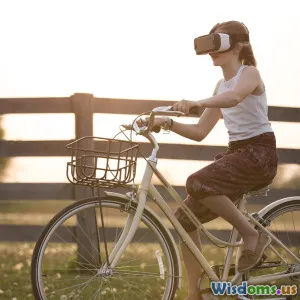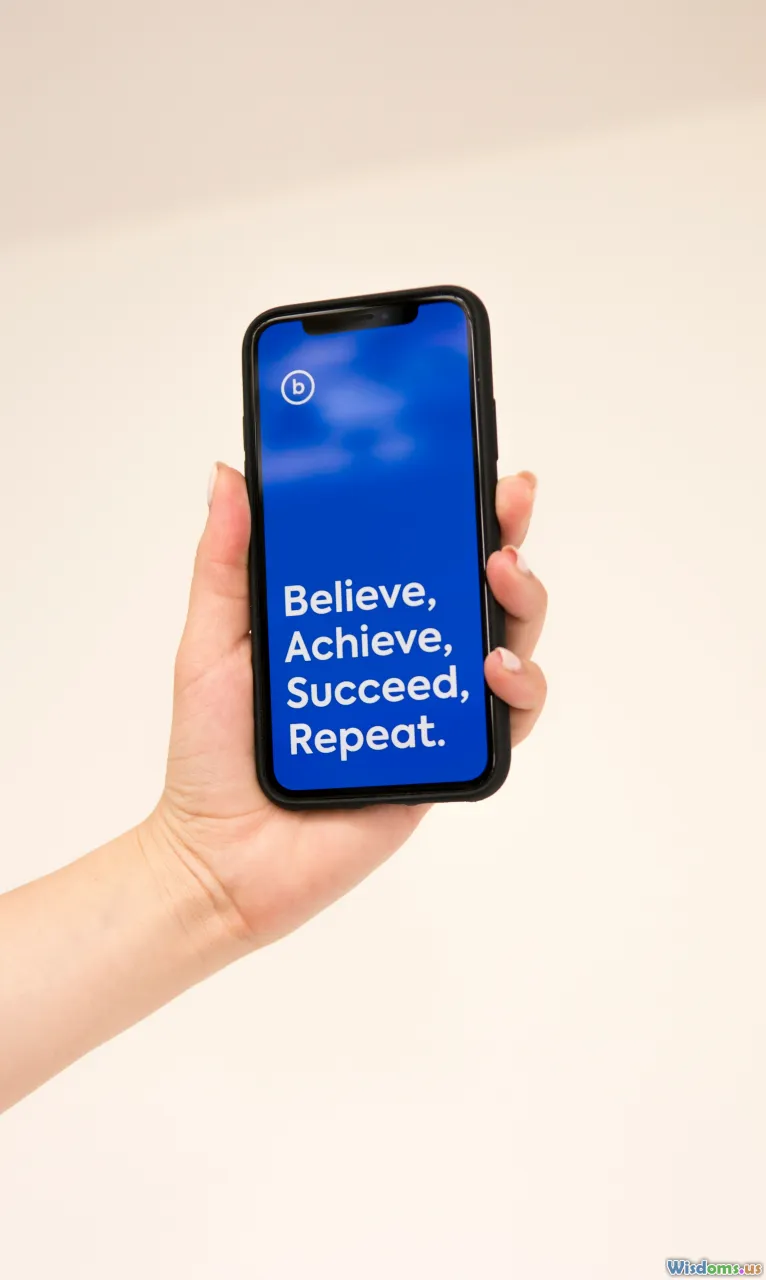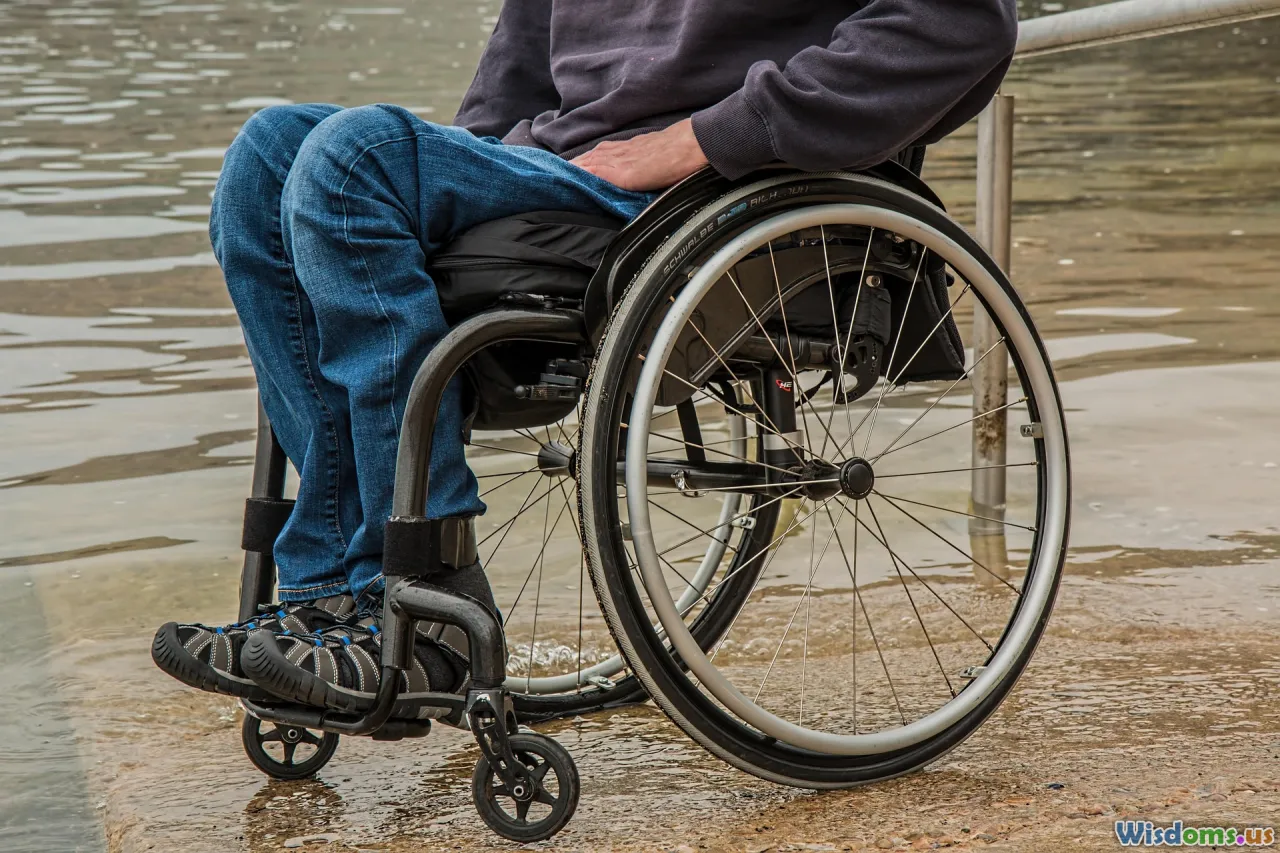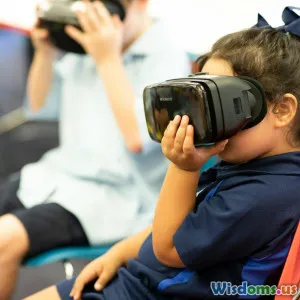
Surprising Ways VR Games Can Boost Mental Health
17 min read Discover how virtual reality games can promote better mental health through unexpected benefits and engaging experiences. (0 Reviews)
Surprising Ways VR Games Can Boost Mental Health
Imagine slipping on a headset and diving into a digital world that not only entertains but also improves your mental well-being. As virtual reality (VR) technology advances, what was once the domain of sci-fi has become a practical tool for self-care. Recent studies and real-world cases reveal VR games may offer genuine mental health benefits, often in unexpected ways. Let’s explore how VR gaming is shaping a surprising frontier for emotional resilience, neurological health, and everyday happiness.
Immersion as an Escape Hatch: Reducing Stress and Anxiety

Trapped by stress? Virtual reality offers an astonishingly effective escape route. Unlike traditional games or even meditation apps, VR’s immersive environments tap directly into the senses, making relaxation feel both immediate and profound.
Consider tools like "Nature Treks VR", where users immerse in calm, natural landscapes—swaying grasses, birdsong, gentle water—ushering minds away from urban tension. Scientific research at the University of California, San Francisco found that time in natural VR settings measurably reduced cortisol (the stress hormone) in participants, sometimes within minutes. The game lets users alter the weather, plant trees, or simply watch clouds drift by—actions that reinforce a feeling of agency, another key buffer against anxiety.
Another example is "Guided Meditation VR", which wraps meditation scripts in captivating 360-degree visuals. A 2021 review published in JMIR Mental Health noted that VR users reported greater focus and stress relief compared to audio-only meditation. The combination of guided voice and immersive setting encourages mindfulness practice by lowering real-world distractions, helping users let go of rumination or panic.
Tackling Social Isolation: Opening New Worlds of Connection

Loneliness and social withdrawal are pandemic problems, but VR games create safe bridges to human connection. For many experiencing social anxiety or isolation, traditional multiplayer games feel daunting or toxic; VR, however, encourages more natural and meaningful interaction thanks to body language and voice chat.
Take "VRChat", a vibrant online universe where users create custom avatars and explore themed worlds together. The social dimension here is groundbreaking: avatars mirror body movement through motion tracking, enabling participants to wave, emote, or hug. Masks—whether silly or serious—provide a sense of safety, letting users self-express without fear. A study published in Frontiers in Psychology found that participants with social phobia experience lower anxiety engaging in VR-based interactions than with text- or audio-only formats.
Clinical psychologists have started using social VR spaces as graded exposure therapy for patients who fear in-person situations. Gradually, they can practice social skills—ordering virtual coffee, joining a dance party, or hosting trivia—all within a supportive, low-stakes environment. Seasoned VR users often report not only regained confidence but tangible new friendships that spill into real life.
Physical Activity: A Fun, Mental Health-Focused Workout

It’s easy to forget the tie between a healthy mind and an active body. Traditionally, video games weren’t known for getting users off the couch, yet VR flips that script entirely. Titles like "Beat Saber", where players slash glowing blocks in rhythm to electronic music, transform exercise into an exhilarating and accessible routine.
Apart from the aerobic benefits—boosting endorphins and dopamine, which naturally curb depression symptoms—these VR workouts are accessible to people who dislike gyms or face mobility challenges. A playful, immersive workout is far less intimidating than public exercise, fostering enjoyment rather than obligation. Data from Stanford University’s Virtual Human Interaction Lab demonstrated that 20 minutes of play in an active VR game matched brisk elliptical exercise for heart rate and caloric expenditure.
There’s also a motivational halo effect: users who form consistent exercise habits in VR tend to adopt healthier behaviors outside the headset. This positive reinforcement makes it easier to manage anxiety and improve mood, especially when traditional fitness is difficult due to stress, weather, or mobility.
Skill-Building and Cognitive Training in Disguise

Beyond basic fun, VR’s unique ability to train the brain holds promise for everything from attention issues to post-traumatic stress disorder. Games like "Moss" and "I Expect You To Die" aren’t just fantastical adventures—they’re cleverly crafted cognitive workouts.
"Moss" tasks players with aiding a tiny mouse hero, balancing puzzle-solving, spatial reasoning, and emotional engagement. Each element exercises different parts of the brain, disguised under charming visuals. Meanwhile, puzzle-heavy escape room games improve memory, focus, and decision-making. A 2022 meta-analysis from Neuroscience & Biobehavioral Reviews reports that VR-based brain training, compared with flat-screen tasks, better enhances executive functions, probably due to the sensation of presence stimulating real-world processing circuits.
Interesting fact: research with older adults shows that VR puzzle games can stimulate hippocampal activity, potentially slowing age-related cognitive decline. This adds another layer to VR’s mental health benefits—as prevention, not just symptom relief.
Mindfulness and Present-Moment Awareness

Modern life is a minefield of distractions, making mindfulness a difficult skill to practice. VR, however, amplifies focus by fully enveloping our sensory awareness. Unlike phone apps where emails and notifications pull focus, VR removes external interruptions.
"TRIPP" and similar platforms offer more than guided meditation—they craft trancelike visualizations that gently react to breath and gaze. The visuals pulse and adapt in real time, helping synchronize attention with the rhythm of inhaling and exhaling. This biofeedback is highly effective: a 2023 pilot at the University of Washington showed that even short, 10-minute VR mindfulness sessions led to meaningful reductions in perceived stress, with effects that persisted for hours.
For those new to meditation or coping with ADHD, this environment feels less frustrating—and more rewarding—because engagement comes easily. Practitioners, including therapists, are now prescribing VR mindfulness games as a bridge to more traditional practices, leveraging their accessibility to jumpstart healthy habits.
Safe Spaces for Exposure and Healing Trauma

Perhaps the most revolutionary application of VR gaming is in exposure therapy for trauma. In a carefully controlled VR simulation, users can gradually confront feared memories or anxieties, at their own pace and with supportive guidance.
Consider programs built around post-traumatic stress disorder (PTSD): VR games can simulate safe versions of triggering environments—for example, recreating a crowded street for someone who survived an urban accident. In clinical studies conducted at Emory University, combat veterans using VR-based exposure therapy with therapists reported steeper improvements in PTSD symptoms than traditional talk therapy alone. These VR sessions eased them into exposure gently, while offering the option to pause, slow down, or reframe the narrative.
Publicly available VR experiences, like "Anamorphine", encourage users to process loss, addiction, and depression through surreal, narrated worlds that prompt reflection and resilience-building. These powerful stories gain their therapeutic potential from immersion—allowing for acknowledgment, catharsis, and ultimately, transformation in a safe environment.
Rewriting Body Image and Self-Perception
Self-esteem and body image struggles are real obstacles in daily life—and here, too, VR offers some surprising solutions. Within VR, users are encouraged to take on avatars: representations that need not resemble their offline selves. Research from UC Davis suggests that customizing avatars enables users to experiment with body shapes, identities, and genders, leading to improvements in self-acceptance and reduced negative self-judgment.
In games like "Rec Room" and "AltspaceVR", users often select fantastic avatars—robots, superheroes, abstract shapes—and interact in a way that’s free from societal expectations. One famous clinical case saw a young person with body dysmorphia report their first deep feelings of self-confidence while leading a group game as a dragon avatar, without the anxiety of having to "perform" a human role.
Moreover, exposure to positive body movements—such as dancing, sports, or martial arts within VR—helps to reinforce mind-body coordination. Many users emerge from these sessions with a more compassionate and empowered view of their bodies. Mental-health focused games even build in avatar-based affirmations and body-neutral language, further supporting well-being.
Emotional Storytelling: Processing and Expressive Healing

Not all VR games are about competition or puzzles. Expansive narrative VR experiences allow users to process emotions in creative ways. Games like "The Under Presents" or "Dear Angelica" walk users through moving, interactive stories about hope, grief, and memory—making inner transformation visible and impactful.
The power of VR narrative lies in the sense of presence; users don’t simply witness a tale, they participate in it. Evidence from Games for Health Journal found that immersive storytelling induces higher empathetic engagement, opening pathways for emotional discovery and catharsis, especially among those who struggle to articulate feelings. Expressive VR art games like "Tilt Brush" give players a space to literally paint their feelings into the world around them, translating emotion into vibrant, three-dimensional art.
Therapists who incorporate VR into expressive therapies see quicker breakthroughs. Patients report increased willingness to revisit challenging themes when shielded by the comforting unreality of VR. This opens new doors for emotion regulation, trauma processing, and creative self-expression.
Boosting Motivation and Positive Outlook Through Gamified Achievements

Achievements and progress matter—a fact leveraged by all good games, but VR goes a step beyond by making mastery feel physical, not just mental. Completing levels, earning badges, or climbing up friendly leaderboards orchestrates a feedback loop of accomplishment and joy. That loop, in turn, drives motivation, sharper focus, and a more positive outlook.
For people with clinical depression, lethargy and loss of interest are core symptoms. VR games like "Supernatural" and "FitXR" combine physical activity, musical cues, and badges, scientifically designed to optimize the brain’s reward centers. During a 2022 study by Oxford Internet Institute, participants reported an improved sense of agency and future orientation after two weeks of daily VR gameplay.
Unlike traditional achievement systems, VR’s interactivity generates more vivid memories and embodied learning, making achievements feel closer to real-world success. Users internalize these wins, gradually building resilience, optimism, and self-efficacy—all recognized protective factors against mental illness.
Making Mental Health Help Fun and Accessible

One of the under-recognized benefits of VR games is how they break down barriers to mental health care. Traditional therapy can be expensive, stigmatized, or geographically out of reach. VR therapy apps, cost-effective for personal devices or available at VR arcades, circumvent these hurdles by making “mental fitness” as private and affordable as gym memberships.
Platforms like "Innerworld" offer peer-led support communities within VR, staffed by trained mental health guides. Unlike clinical therapy, participation is anonymous and playful, letting users ask for help or just hang out without pressure. Such inclusivity reaches marginalized communities, rural youth, or anyone reluctant to seek help offline.
Accessible VR games are also more customizable than most fitness or mental health tools: players of any mobility level, age, or confidence can find options tailored to their needs. Game creators increasingly consult with therapists and advocacy groups so that every release addresses issues like safe spaces, age-appropriate content, and session timing to minimize overwhelm.
Virtual reality launched as a playground for the imagination. Now it’s transforming into a powerful partner for mental health. Whether guiding a meditation, connecting across continents, training attention, or narrating journeys of emotional healing, VR games have quickly evolved from pure escapism into practical tools for daily well-being. As the technology becomes more accessible, new research and innovation beckon a future in which headset-enabled self-care may be as common—and as celebrated—as a walk in the park. With this expanding landscape, the connections, empowerment, and joy within VR may be closer than we think—one session at a time.
Rate the Post
User Reviews
Popular Posts



















